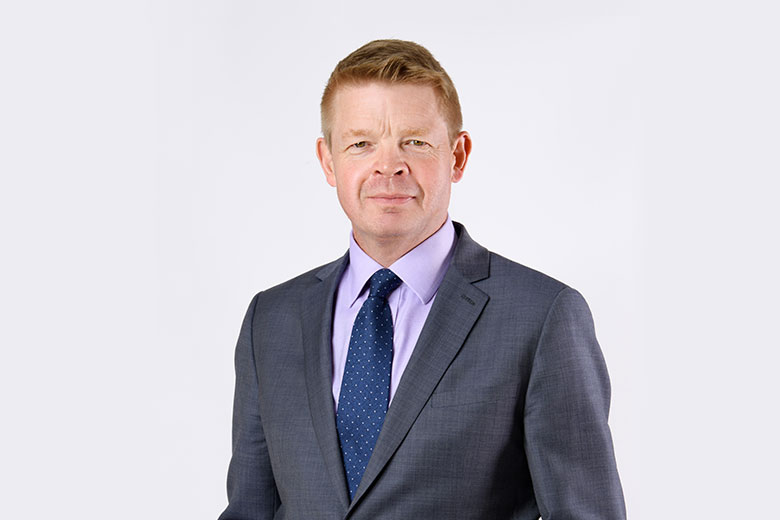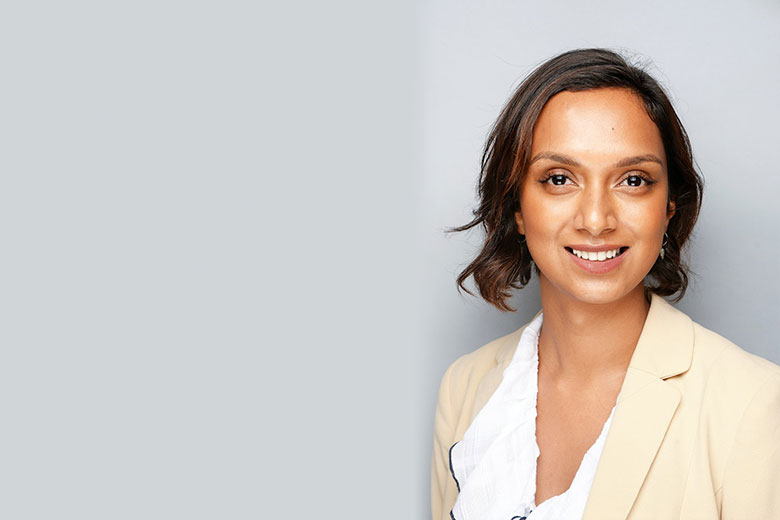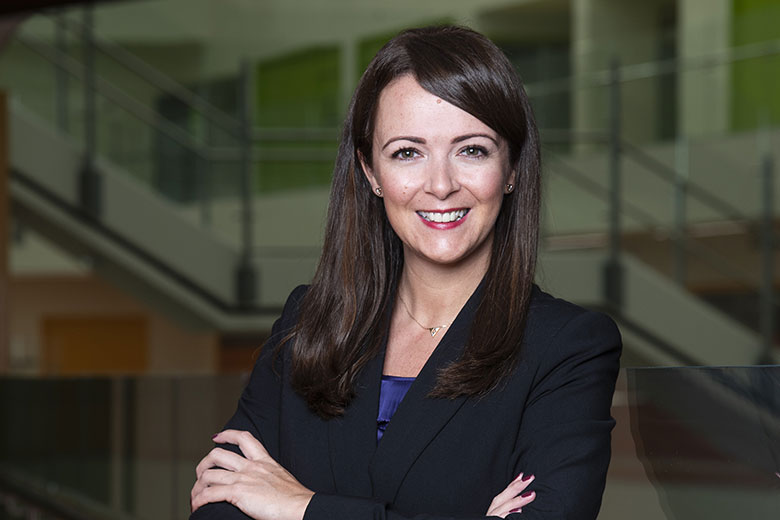Want to learn about what’s going on in education today – and what education might look like tomorrow? We did! So, we joined an informative roundtable hosted by the Repton Family of Schools in the UAE
The future of education was very much on the agenda from the beginning, with David Cook, Headmaster at Repton Dubai and Chief Education Officer for the Repton Family of Schools in the UAE, focusing on eco-literacy and sustainability. “Expo 2020 Dubai has been a brilliant showcase of what the future may have to offer, both exciting opportunities and challenges. One of those challenges is climate change and it is surely no coincidence that Expo 2020 chose sustainability as one of its main focal points. While that has been going on, hundreds of thousands of school children have spent the last six months exploring and studying key topics such as conservation, how to protect the environment, how to generate less waste, and how to recycle more.”
To help build this awareness of the environment, good schools must ensure they take the ‘pupil voice’ and the ‘student counsel’ seriously. “These councils have real opportunities to initiate and contribute to sustainability and conservation activities,” David continued. “Good schools do not allow these councils to pay just lip service. Good school councils are leading their schools and this is particularly true at Repton – this important topic of sustainability and conservation is a standing item at every school council meeting. Students themselves are also introducing sub-committees called Eco-Councils, which push the school leadership, including headteachers and staff, to take practical steps. Let me give you a couple of examples.
“In Repton Dubai, two practical steps have emerged in the last 12-18 months: all lights in the school have been replaced with longer-lasting and more energy-efficient LED, which has reduced energy consumption, and although that’s a facilities management function, the facilities manager has been called to the school council to report about that reduction in energy consumption. In addition, Repton Dubai is in the final planning stages for a modest solar farm on the school campus, which will generate clean electricity, and again it’s the school pupils who are asking our facilities manager, please come and tell us about this, we’re interested.”
There are many initiatives for Repton students to get involved with, including Junk Couture Abu Dhabi 2022, which is a creative design competition for 13-18-year-olds in fashion and design with a key focus on recycling. So, lots of fun and creativity but with a key message on recycling.
Not content to be left behind, some of the parent groups in Repton Abu Dhabi have initiated their own community eco-activities of cleaning up litter in the mangrove swamps. Furthermore, Repton has been approached by Dubai Municipality to support ‘Go Wild Dubai’, which is a sustainability art and short story competition, based on protecting the wild areas in Dubai.

“Good school councils are leading their schools and this is particularly true at Repton”
One example that stands out over the last year is the annual Digital Summit which, hosted by Repton Abu Dhabi, was open to students and teachers throughout the UAE. “The event invited UAE teachers and students from Year 5 and Year 6 to collaborate on environmental awareness initiatives,” says David. “It was part of a digital conference and students had a great deal of fun designing and then presenting conceptual computer games and applications on sustainable issues such as ocean pollution, litter on our beaches, and air pollution.”
There is no doubt that young people today are actively engaged in trying to look after their planet, with David commenting: “In 2022, this topic is no longer on the fringe of an educational debate. Whereas in the past, schools talked about maths and English and progress and attainment, eco-literacy and sustainability are also now mainstream. Not only is it mainstream, but it’s also not optional anymore as to whether schools should get involved – the topic of sustainability is written into the inspection framework, ensuring that schools cannot ignore it.”
Gillian Hammond, Principal at Repton School Abu Dhabi, added: “We have a designated role now amongst the staff as a responsibility for a sustainability lead. As David was saying, we ask the facilities managers to report to them about how efficient our buildings are right now? What more can we do? At Repton Abu Dhabi, we now have hydroponics; we are growing our own fruit and vegetables at the front of the building. For parents and children, it’s created a great conversation about where our food comes from? What is our food footprint? And what are the things that we can do even just together as families when we visit the supermarket? Lots of exciting things going on, but we’re trying to make it as real-world as possible for our students.”
Digital Literacy
Gillian then continued speaking, as she discussed the implications and benefits of AI and new technology.
“Digital literacy is critical in all schools,” she began. “At the Repton Family of Schools, we have two that are ‘Apple Distinguished’ schools. We’ve been reaccredited three times out of recognition of how we embed digital technology across all of the subject areas and all age groups. For example, in the Early Years, we have our STEAM gardens where students explore habitats and the weather; they also look at coding, but do it in a physical, practical way, even in PE lessons.”
The Apple Distinguished schools have a digital working party, a group of senior and middle leaders, who meet twice a term to discuss digital literacy. “We want to make sure we are at the cutting-edge and that our students and staff can use technology to build real-world learning. Moreover, we want to make sure that learning comes to life not only in the classroom but far beyond it too,” Gillian explains. “So our children take part in earning a digital passport as they move through the ages, from three to 18, and our digital teams, our digital leaders, have helped us to create what we call our software workflow. This ensures that it gets increasingly technical as students get older, dictating that they receive more and more knowledge and skills as they move through their education journey with us.”
Naturally, the schools have to take parents on this journey too, so that they can support their children. “We provide lots of workshops and webinars for parents because children must be engaged in school in the same way as they are engaged with technology at home.
“We want to make sure we are at the cutting-edge and that our students and staff can use technology to build real-world learning”
“I’m sure you realise just how technical our children are, just at home. They are using AI technology all of the time; they are researching on Google; they are using face recognition technology. We have smart homes that can control the indoor climate, the doorbell, the lights, and children use Alexa all of the time, as well as auto-predictive texts. Children are used to using all of this. Consequently, we have to make sure that the software workload, which gets more advanced as the students get older and their interests and skills develop, is introduced and taught holistically, incorporating the Internet of Things and how everything is interconnected.”
The school begins this journey by saying whatever technology is being used – at Repton it’s Apple iPads – it is important to start with the native apps. “This is so our teachers and students become adept at picking up and putting down their iPads to use things like a calculator, the camera, the mark-up tools, the recording and so on,” Gillian says. “And they use them and put them back down without thinking about it. It’s not a gimmick; it’s not a toy or a distraction.”
“We then do what we call ‘app of the month’ and so our digital teams work together and we share across our schools what we think are the best apps in the different subject areas.”
Chandini Misra, Head of Senior School at Repton Al Barsha, added: “The UAE is already a global centre of smart technology. Our students think it’s normal. It’s dinosaurs like me, who didn’t grow up with mobile phones, who are probably a bit scared about it; it’s actually keeping up with our young people!

“A strong sense of community, ensuring that there is wraparound support for each student’s inspiration”
Using Data to Foster Better Learning
Chandini proved that she was far from a dinosaur when she began talking about using data to foster better learning, explaining: “As a family of schools, we are data-rich. That’s not just the kind of formal data that we have on numeracy and literacy, but also the extensive amounts of data that we have on social and emotional development, and wellbeing. And it’s the triangulation of that data that’s very powerful when we think about the individual learning experiences for our students.”
There has been a misconception in education that it was the teaching that brought through the data, but that has now been completely turned on its head. “It is the data that should inform the teaching in the classroom and across the schools,” Chandini says. “When we do collect data, and we arm our teachers with that data, they’re often very excited to get it at the start of the year – the new classes in front of them are waiting to get their hands on this data to tailor the learning experiences for the students. We want to make sure that they have all of that. So we look at different ways to triangulate it. GL assessments are very powerful in this. But it’s also about educating the students and the parents about what that data means.
“Another common misconception that comes with cognitive ability data, which is run by GL assessments and cognitive ability tests, is that if a student has a lower score in a certain area, for example, maths, it means that the student is not good with numbers. Actually, that’s not the case!”
“What it means is that they might find areas that are heavily quantitative more challenging. It’s important that as teachers, we are aware of that, but also that we recognise the students when they are attaining highly in those areas because actually, they’re working really hard and they are putting in the effort.”
Chandini explains that this all links back to a growth mindset, which is why at the start of each year the school runs its cognitive ability tests, making sure that parents and students understand what those results mean.
“Another thing that I think is interesting, particularly following the pandemic, is confidence, which is a key part of the growth mindset. This comes down to three things: community, inspiration and challenge. If you look at any of our professional development and faculty meetings across the family of schools, one thing that does come through when anyone visits is a strong sense of community, ensuring that there is wraparound support for each student’s inspiration.
“Challenge, again, comes down to a really thorough understanding of the data that we have for our students and how we put that into practice in the classroom to ensure that each student is appropriately challenged. They’re in the struggle zone, the area where they may make mistakes, but that’s fantastic because they’re learning and failure isn’t perceived as a negative thing because it allows them to move forward.”
The Dubai Student Wellbeing Census asks one fundamental question: what does it need for a human being to thrive?
Mental Health
Good mental health is as important to a child’s safety and wellbeing as their physical health. It can impact all aspects of their life, including their educational attainment, relationships and physical wellbeing. Yet so often, we focus on ‘bad mental health’, as David points out: “It’s interesting, this whole debate about mental health. If we’re not careful, we’ll frame it in a negative light. What I’ve sensed is that when we say things like mental health, we don’t start from a neutral position.
“If we were talking about physical health, it might be understood differently. For example, what needs to be done to support physical health, and there are possibly seven or eight practical things that you can think of straightaway. But when we say mental health, we’ve almost checked a box, which says, this is a problem.
“It’s true that, historically, we probably haven’t thought about promoting positive mental health the same way as positive physical health. Now, though, schools are taking mental health very seriously; Dubai has even got the Dubai Student Wellbeing Census, which I now understand is going to be rolled out right across the Emirates.
The Dubai Student Wellbeing Census asks one fundamental question: what does it need for a human being to thrive? What it needs is to look after your physical health, get enough sleep, eat some breakfast, have good friendship groups, have good hobbies, make sure you have an inner life, do challenging stuff, that occasionally, you’re going to get badly wrong. Schools have got to provide an environment where all those things happen. Therefore, when you see Repton sending students out on an expedition, working out in the heat, or doing a big drama or music production, they’re good fun in their own right, but they’re also building positive mental health.”
Gillian agrees, adding: “I think something else that is important for wellbeing and good mental health is that people feel they’re contributing. With performances, sporting competitions, charity work in their communities, charity work abroad, I think it helps not only our students but the parents too, who’ve also gone through a very troubling and tough time of late.
“It’s recognising those positive character traits that allow for good mental health. A lot of our students who may have moved here from another country, who may have moved to several countries before that, are so much more resilient than many adults across the world, who are afraid to leave their towns because it feels like too much of a change for them. I think that is something that we are fortunate in the region – we have global citizens who are already resilient and adaptable to change.
“We’re also very privileged, and I think our young people recognise this. We have a lot of children who want to fundraise for different causes, and we always support them in their research to make sure that they know what is the best way to do that?”
Finally, Gillian was asked if now schooling is back in the classroom, has it had a positive effect on students’ mental health?
“Yes, 100%. We’ve never heard so many children say they couldn’t wait to get back into school and that they missed school. Our children really wanted to see their peers and teachers in person. They missed the interaction. So yes, I think it’s had a huge impact on mental health.”
For those who want to take a closer look at the Repton Family of Schools and what they offer, opening days are coming up at Repton Dubai (16 April) and Repton Al Barsha (23 April).






